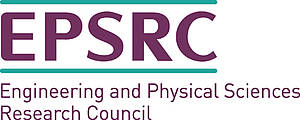The 19th CREST Open Workshop
Interference and Dependence
Date: 30 April - 1 May 2012
Venue: Engineering Front Executive Suite, Roberts Building, UCL (Directions, or 'C5' on the map here, or Find it on Google maps.)
Interference and dependence are closely related concepts, the first being the observational phenomenon connected to the second. Interference refers to the behaviour of some parts of a system influencing the behaviour of another part of the system. Dependence specifies the relation which determines those parts of the system that influence the computation of another part of the system.
Both interference and dependence analysis underpin many activities of computer science, including program analysis, debugging, traceability, analysing software for security properties, testing software, reverse engineering, slicing, model checking software and specifications, and data mining. This workshop will bring together researchers working on interference and dependence from both the modelling and programming research communities to discuss connections and challenges.
Programme: (Downloadable programme in PDF)
+++++++++30 April 2012 – DAY 1+++++++++
10:00 Arrival, Coffee and Pastries
10:30 Welcome and Introductions (Video, Introduction)
Kelly Androutsopoulos, CREST Centre, SSE Group, Department of Computer Science UCL, UK
11:00 Consistency Management (Slides, Video)
Anthony Finkelstein, SSE Group, Department of Computer Science, UCL, UK
11.30 Typing illegal information flows as program effects (Slides)
José Santos, Departamento de Engenharia Informática, Lisbon, Portugal
12.00 An Overview of UPPAAL and Its Applications
Alexandre David, Department of Computer Science, Aalborg University, Denmark
12:30 Sandwich lunch at the venue
14:00 Fault Tolerant Noninterference
David Sands, Department of Computer Science & Engineering, Chalmers University of Technology, Sweden
14:30 Squeezine (Slides, Video)
David Clark, CREST Centre, SSE Group, Department of Computer Science, UCL, UK
15:00 Adaptation of Service Composition
Andrea Zisman, Department of Computing, School of Informatics, City University London, UK
15.30 Refreshments
16:00 Abstract non-interference (Slides, Video)
Roberto Giacobazzi, Dipartimento di Informatica, Università degli Studi di Verona, Italy
16:30 Abstract Slicing - Abstract interpretation-based approaches to slicing (Slides, Video)
Isabella Mastroeni, Dipartimento di Informatica, Universita' degli Studi di Verona, Italy
17.00 Discussion
18.00 Wrap up
18.15 Light Dinner at the Marlborough Arms
+++++++++1 May 2012 – Day 2+++++++++
9:00 Arrival, Coffee and Pastries
9:30 Interference, Dependence and Bell's Theorem (Slides, Video)
Samson Abramsky, Department of Computer Science, University of Oxford, UK
10:00 The Thermodynamics of Interference (Slides, Video)
Pasquale Malacaria, School of Electronic Engineering and Computer Science, Queen Mary University of London, UK
10:30 Dependence Communities in Software (Slides, Video)
Sebastian Danicic & James Hamilton, Department of Computing, Goldsmiths University of London, UK
11:00 Refreshments
11:30 Differential Privacy at work: Controlling the privacy threats induced by Data Dependence
Catuscia Palamidessi, INRIA Saclay and LIX, École Polytechnique, France
12:00 Information Flow Analysis for JavaScript
Christian Hammer, CISPA, Saarland University, Germany
12:30 Using Probabilistic Strategies to Reason About Information Flow (Slides, Video)
Sebastian Hunt, School of Informatics, City University London, UK
13:00 Sandwich lunch at the venue
14:30 Dependence clusters (Video)
Mark Harman, CREST Centre, SSE Group, Department of Computer Science, UCL, UK
15:00 A General Model Based Slicing Framework
Tony Clark, Department of Business Information Systems, Middlesex University, UK
15.30 Hoare-like Logics for Verifying and Inferring Conditional Information Flow (Slides, Video)
Torben Amtoft, Department of Computing & Information Sciences, Kansas State University, USA
16:00 Wrap-up
17.15 Close
Photos:








































This workshop is supported by the following sponsors:



Registered Attendees: (Get registered Here)
- Samson Abramsky, Department of Computer Science, University of Oxford, UK
- Torben Amtoft, Department of Computing & Information Sciences, Kansas State University, USA
- Kelly Androutsopoulos, CREST Centre, SSE Group, Department of Computer Science, UCL, UK
- Richard Barracloug, @UK plc, UK
- Tim Cianchi, Zuhlke Engineering Ltd, UK
- David Clark, CREST Centre, SSE Group, Department of Computer Science, UCL, UK
- Tony Clark, Department of Business Information Systems, Middlesex University, UK
- Sebastian Danicic, Department of Computing, Goldsmiths, University of London, UK
- Alexandre David, Department of Computer Science, Aalborg University, Denmark
- Paolo Falcarin, School of Architecture, Computing and Engineering (ACE), University of East London, UK
- Anthony Finkelstein, SSE Group, Department of Computer Science, UCL, UK
- Vida Ghanaei, Department of Informatics, King's College London, UK
- Roberto Giacobazzi, Dipartimento di Informatica, Università degli Studi di Verona, Italy
- Nicolas Gold, CREST Centre, SSE Group, Department of Computer Science, UCL, UK
- Christian Hammer, CISPA, Saarland University, Germany
- James Hamilton, Department of Computing, Goldsmiths, University of London, UK
- Mark Harman, CREST Centre, SSE Group, Department of Computer Science, UCL, UK
- Sebastian Hunt, School of Informatics, City University London, UK
- Syed Islam, CREST Centre, SSE Group, Department of Computer Science, UCL, UK
- Yue Jia, CREST Centre, SSE Group, Department of Computer Science, UCL, UK
- Jens Krinke, CREST Centre, SSE Group, Department of Computer Science, UCL, UK
- Mike Laurence, Department of Computer Science, University of Sheffield, UK
- Emmanuel Letier, SSE Group, Department of Computer Science, UCL
- Sergio Maffeis, Imperial College London, UK
- Pasquale Malacaria, School of Electronic Engineering and Computer Science, Queen Mary University of London, UK
- Isabella Mastroeni, Dipartimento di Informatica, Universita' degli Studi di Verona, Italy
- Amuno Mazino Michael, Department of Information Systems Engineering, Cyprus International University, Cyprus
- Rabih Mohsen, Department of Computing, Imperial College London, UK
- Matthew Moroz, CREST Centre, SSE Group, Department of Computer Science, UCL, UK
- Peter O'Hearn, Programming Principles, Logic and Verification, Department of Computer Science, UCL, UK
- Catuscia Palamidessi, INRIA Saclay and LIX, École Polytechnique, France
- Quoc-Sang Phan, Queen Mary, University of London, UK
- David Sands, Department of Computer Science & Engineering, Chalmers University of Technology, Sweden
- Tiantian Wang, CREST Centre, SSE Group, Department of Computer Science UCL, UK
- Andrea Zisman, Department of Computing, School of Informatics, City University London, UK
